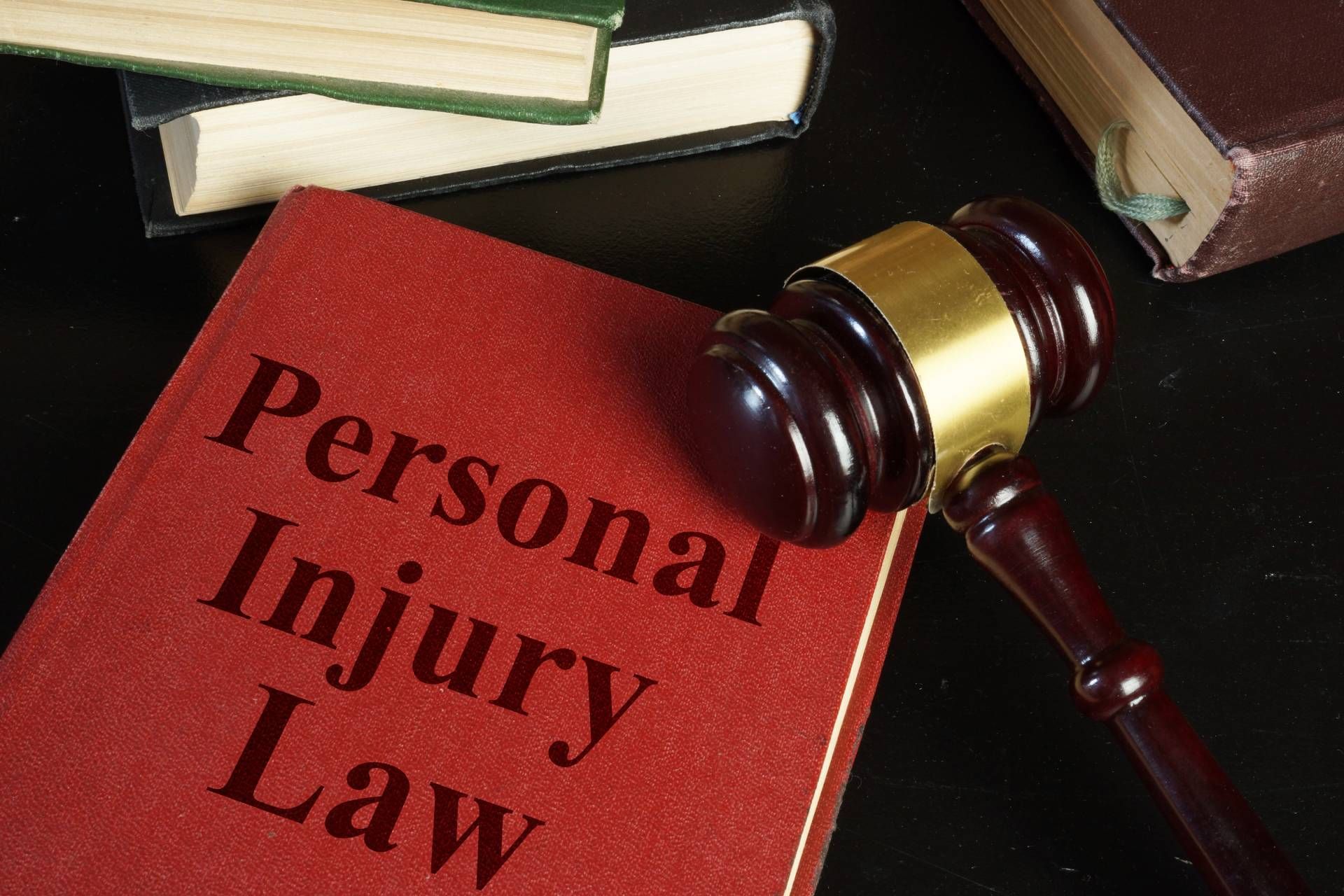Frequently Asked Questions
Your Downriver Area Legal FAQs
Auto Negligence, Employment, Criminal, and Civil Rights Law
Navigating legal issues can be complex and stressful. This FAQ aims to provide general information about common legal concerns in the Downriver communities of Taylor, Lincoln Park, Southgate, Allen Park, Wyandotte, Romulus, Trenton, Woodhaven, Melvindale, Riverview, Ecorse, River Rouge, Gibraltar, Flat Rock, Rockwood, and surrounding areas in Michigan.

Auto Negligence
What Is "Auto Negligence" in Michigan?
Auto negligence refers to a situation where a driver's carelessness or failure to act reasonably causes a car accident, leading to injuries or damages. This can include distracted driving, speeding, drunk driving, or violating traffic laws.
How Is Fault Determined in A Michigan Car Accident?
Michigan follows a modified comparative negligence system. This means that if you are partially at fault for an accident, your compensation may be reduced by your percentage of fault. If you are found to be more than 50% at fault, you generally cannot recover pain and suffering damages, though you may still receive No-Fault benefits for medical expenses and lost wages.
What Do I Need to Prove Negligence in A Car Accident Case?
To prove negligence, you typically need to establish four elements: * Duty of Care: The other driver had a duty to drive safely. * Breach of Duty: The driver failed to meet that duty (e.g., by speeding). * Causation: The driver's breach directly caused your injuries. * Damages: You suffered actual losses (medical bills, lost wages, pain and suffering). Evidence can include police reports, photos/videos from the scene, witness statements, and medical records.
Can I Still Recover Compensation if I Was Partially at Fault?
Yes, under Michigan's modified comparative negligence rule, you can still recover compensation if you are 50% or less at fault. However, your compensation will be reduced by your percentage of fault.
Do I Need a Lawyer for An Auto Negligence Claim?
While it's possible to handle a claim yourself, proving negligence can be challenging, especially if fault is disputed or injuries are severe. An experienced attorney can help gather evidence, negotiate with insurance companies, and protect your rights to ensure you receive fair compensation.
Employment Law
What Types of Discrimination Are Prohibited in Michigan Workplaces?
Michigan law prohibits discrimination in employment based on various protected categories, including religion, race, color, national origin, genetic information, sex, age (40 and older), marital status, height, weight, arrest record, and disability. This applies to hiring, promotions, pay, and other terms of employment.
What Should I Do if I Believe I've Been Discriminated Against at Work?
You can contact agencies such as the Equal Employment Opportunity Commission (EEOC) at the federal level or the Michigan Department of Civil Rights (MDCR) at the state level. It's often advisable to report the misconduct to your HR department first, if applicable, and then seek legal counsel.
What Are My Rights Regarding Unpaid Wages or Overtime?
Under the Fair Labor Standards Act (FLSA) and Michigan law, employers are required to pay at least minimum wage and overtime (typically 1.5 times your regular rate) for hours worked over 40 in a week for most non-exempt employees. If you have issues with unpaid wages, you can contact state and federal agencies or consult an attorney.
Can My Employer Fire Me for Any Reason in Michigan?
Michigan is generally an "at-will" employment state, meaning an employer can typically discharge an employee for any reason, or no reason at all, as long as it's not for an unlawful or discriminatory reason (e.g., based on a protected category). However, exceptions exist for employees with employment contracts or those protected by whistleblower laws.
What is the Family and Medical Leave Act (FMLA)?
The FMLA allows eligible employees to take up to 12 weeks of unpaid, job-protected leave for specific family and medical reasons, such as the birth of a child, caring for a family member with a serious health condition, or your own serious health condition. The FMLA also protects employees from retaliation for taking such leave.


Criminal Law
What's the Difference Between a Misdemeanor and A Felony in Michigan?
Crimes are categorized by severity. Misdemeanors are less serious offenses, typically punishable by fines and up to a year in county jail. Felonies are more serious crimes, potentially resulting in larger fines and longer prison sentences in state facilities. Some offenses can be classified as either depending on the specific circumstances.
What Should I Do if I'm Pulled Over or Arrested by The Police?
Be respectful to the officer. * Remain silent: You have the right to remain silent. Do not answer questions without an attorney present. * Do not consent to searches: You have the right to decline searches of your vehicle or property unless the officer has a warrant or probable cause. * Request an attorney: As soon as possible, inform the police you wish to speak with an attorney.
Why Do I Need a Criminal Defense Attorney if I'm Innocent?
Even if you are innocent, navigating the criminal justice system is complex. A criminal defense attorney can: * Protect your rights. * Investigate the charges and evidence against you. * Negotiate with prosecutors. * Represent you in court. * Work to get charges reduced or dismissed.
What Is Probation, and How Does It Differ from Parole?
Probation: This is a sentence that allows you to serve your time outside of jail or prison, under strict rules and supervision by a probation officer. It's often an alternative to incarceration. * Parole: This is an early release from prison under similar rules and supervision as probation. You serve a portion of your sentence in prison and then are released under supervision.
Can a Criminal Record Be Expunged in Michigan?
Michigan has laws that allow certain criminal convictions to be "set aside" or expunged, effectively removing them from public record. Eligibility depends on the type of crime, how much time has passed, and your criminal history. It's best to consult with an attorney to determine if you are eligible for expungement.
Civil Rights Law
What Are Civil Rights, and How Are They Protected in Michigan?
Civil rights are the basic rights and freedoms that protect individuals from discrimination and ensure equal treatment under the law. In Michigan, these rights are protected by the Michigan Constitution and laws like the Elliott-Larsen Civil Rights Act and the Persons with Disabilities Civil Rights Act, prohibiting discrimination in areas like employment, education, housing, public accommodations, and public service.
What Should I Do if I Believe My Civil Rights Have Been Violated?
If you believe you've experienced unlawful discrimination or a civil rights violation, you can: * File a complaint with the Michigan Department of Civil Rights (MDCR). * Contact a civil rights attorney to discuss your specific situation and legal options.
What Types of Discrimination Are Covered Under Michigan's Civil Rights Laws?
Michigan's civil rights laws generally cover discrimination based on religion, race, color, national origin, arrest record, genetic information, sex, age, height, weight, marital status, and disability. Some laws also address familial status in housing.
Can I File a Civil Rights Complaint Against a Government Entity or Police Department?
Yes, civil rights laws can apply to government entities, including police departments, if their actions violate constitutional rights (e.g., excessive force, unlawful search and seizure, discrimination). These cases often involve complex legal arguments and are best handled with the assistance of a civil rights attorney.







